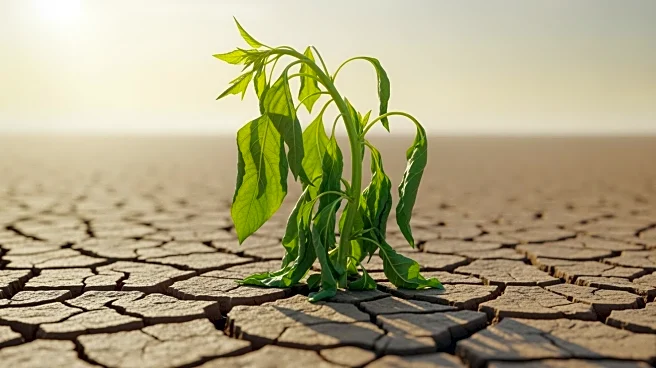What's Happening?
The world has reached its first major climate tipping point, marked by the irreversible decimation of warm water coral populations due to rising temperatures. This development signifies a critical threshold
in climate change, where the damage to coral ecosystems is beyond recovery. The widespread coral dieback poses significant threats to marine biodiversity and the livelihoods of communities dependent on these ecosystems. Experts are raising alarms about the potential catastrophic global consequences, urging immediate attention and action to mitigate further environmental damage.
Why It's Important?
The triggering of a climate tipping point underscores the urgent need for global action on climate change. Coral reefs are vital to marine life, providing habitat and food for numerous species. Their decline could lead to a collapse in marine biodiversity, affecting fisheries and tourism industries worldwide. Economies reliant on these sectors may face severe disruptions, impacting food security and employment. The event highlights the broader implications of climate change, emphasizing the necessity for international cooperation and policy measures to address environmental challenges and protect vulnerable ecosystems.
What's Next?
In response to this tipping point, governments and environmental organizations may intensify efforts to combat climate change through policy reforms and conservation initiatives. There could be increased investment in research and development of climate-resilient technologies and practices. Stakeholders might advocate for stricter emissions regulations and promote sustainable practices to prevent further ecological damage. The situation calls for a reevaluation of global climate strategies, potentially leading to new international agreements focused on environmental preservation and climate adaptation.
Beyond the Headlines
The irreversible damage to coral populations raises ethical and cultural questions about humanity's responsibility to protect natural ecosystems. It challenges societies to consider the long-term impacts of environmental neglect and the moral obligation to future generations. The event may also influence cultural perceptions of climate change, fostering a greater sense of urgency and collective action. As awareness grows, there could be shifts in public attitudes towards environmental stewardship and sustainable living.










